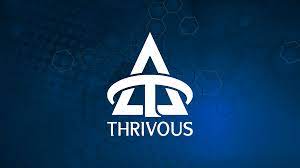If you’re having trouble sleeping, using melatonin supplements could help. However, it depends on the sleep condition you wish to treat - melatonin gummies don’t work for all sleep disturbances.
Before rushing out to buy a bottle of melatonin gummies — or any other sleep aid — talking with your healthcare provider is a good idea. This will help you understand how melatonin and your natural sleep cycles work and what you can do to improve your sleep.
Whether you're looking for the latest vitamins and supplements, want to stock up on over the counter medication, or are looking for a digital solution for your regular prescription, our providers have you covered. Compare brands below and click on your favourite to shop their best offers now!
Getting a good night’s sleep
We all have a sleep and wake cycle known as a circadian rhythm. This natural 24-hour-ish cycle is influenced by our exposure to light and supported by a key sleep hormone — melatonin. Blackout curtains can help maintain your sleep cycle, particularly through summer, as they’ll stop natural light from disrupting sleep hormones.
The pineal gland in your brain naturally produces melatonin. Levels of this hormone begin increasing when natural light fades. It induces a state of gentle wakefulness in your mind and body. Although it doesn’t make you immediately tired, it does relax you and help with unwinding for sleep.
A regular and calming bedtime routine supports your natural circadian rhythms and melatonin production. Avoiding blue light from phones and other screens, keeping a regular bedtime and wake time, and exercising throughout the day (but no more than 2 hours before bed) all contribute to good quality sleep.
But no one sleeps well every night. And some of us have more trouble sleeping than others. As we age, sleep can become more elusive. That’s because our melatonin production declines around the age of 55. It can also fluctuate throughout our lives for other reasons. This is when melatonin supplements like gummies may be helpful.
Is it legal to use melatonin sleep gummies in the US?
You can typically purchase melatonin supplements over-the-counter in the United States, and they are perfectly legal for you to use.
The FDA (Food and Drug Administration) classifies melatonin as a dietary supplement rather than a medication because it is drug-free. Therefore, it doesn't have the same strict regulations. To address sleep problems or jet lag, specific melatonin quantities aren't required for approval, which means that melatonin levels can vary widely in sleep aids in the US, and some products may contain very little or none at all.
A growing number of Americans are choosing to take melatonin supplements, with usage surging from 0.4% to 2.1% between 1999 and 2018, as revealed by a survey.
If you have any specific health concerns or conditions, discussing melatonin or any other supplement with a healthcare provider is advisable to ensure it is safe and appropriate for your needs.
What are the benefits and risks of sleep gummies?
The obvious benefit of gummies is the sleep support they provide. Dropping off to sleep faster and enjoying better sleep quality is why most people take them.
Although melatonin is produced naturally by our bodies, taking supplements containing it isn’t entirely risk-free. Some of the common side effects of melatonin gummies and supplements include:
- Headaches.
- Nausea and stomach aches.
- Feeling tired and drowsiness throughout the day.
- Dizziness, irritability, and restlessness.
- Dry mouth and skin.
- Strange dreams and night sweats.
Breastfeeding women, children, people with autoimmune and seizure disorders, or people suffering from depression shouldn’t use melatonin supplements. People with medical conditions such as high blood pressure or diabetes should speak with their healthcare professional before taking melatonin gummy supplements or similar products.
Supporting better sleep with melatonin gummies
Melatonin gummies don’t work for all sleep conditions. If you have sleep apnea, you should avoid taking melatonin. However, if you have insomnia, delayed sleep-wake phase disorder, jet lag, and other sleep conditions, you can use them to get your sleeping rhythms back on track.
Not all sleep gummies are created equal. Different brands have different ingredients; some include melatonin, while others may exclude melatonin and instead use l-theanine, CBD, chamomile extract, lavender, or a combination of these as their active ingredients.
If you want to try melatonin to aid sleep, chat with your healthcare professional first. They’ll help you understand the type of sleep condition you are dealing with. After your consultation, you may be prescribed melatonin supplements in tablet, capsule, gummy, or liquid form.
What are the active ingredients in sleep gummies?
Each brand of sleep supplement will have slightly different recipes for their chewable sleep treats. Most include melatonin, l-theanine, CBD, 5-htp, chamomile, or a combination of these active ingredients.
What is melatonin and what does it do?
Melatonin is a natural sleep hormone produced by the pineal gland in your brain in response to waning light. The increasing melatonin levels in your body help you prepare for sleep. When melatonin peaks, you experience your deepest and most restful sleep. As levels reduce again, you move towards wakefulness.
Melatonin regulates your sleep-wake cycle as well as women’s menstrual cycles. It protects your brain from losing functioning neurons; some scientists believe it has anti-aging properties. For supplements, manufacturers can extract nature-made melatonin from animals and microorganisms, but the most common method is synthetic production.
What is l-theanine?
Our bodies don’t produce this stress-relieving amino acid. Instead, you can find it in green tea leaves. Research has found it effectively relieves stress, improves mood, and helps to maintain normal sleep patterns. This small study in 2019 also found an evening 200 mg dose of L-theanine reduced stress-related sleep problems, anxiety, and depression.
What is CBD?
CBD oil derives from the cannabis sativa or hemp plant. It’s not psychoactive, so it won’t give you a high, but it is known to have anti-anxiety effects that can improve sleep. It can be a useful sleep aid when combined with other ingredients to create sleep gummies.
What is 5-htp?
5-htp is a chemical the body makes from the amino acid tryptophan, which you can find in various foods. Our body uses 5-htp to make serotonin and melatonin. These hormones relax your mind and body to prepare you for sleep. Gummies with 5-htp will help you off to dreamland.
Chamomile for better sleep
Chamomile is an ancient medicinal herb. Traditionally, people have used it to help calm and soothe various conditions, including aiding individuals who struggle with sleep. It’s a mild sedative, and the extract reduces stress hormones, helping you relax.
How much melatonin should I take?
How much melatonin you should take depends on several factors, including age, sleep pattern, and the reason for taking melatonin. For occasional sleeplessness, it is best to begin with 0.5 to 1 milligram (mg) of melatonin about 30 minutes to an hour before bedtime. If needed, cautiously increase the dose, but avoid high doses as they may lead to daytime grogginess.
People with insomnia, delayed sleep-wake phase disorder, and non-24-hour sleep-wake cycles benefit from taking 2mg of melatonin an hour or two before bed.
The recommended dose for treating jetlag-related sleep issues is slightly higher at 3mg a night for up to 5 nights. Along with supporting better sleep, gummies are a great tasting way to begin an evening wind-down routine.
Remember that responses to melatonin can vary, and what works well for someone else may not work the same way for you. You should monitor how your body responds to melatonin and adjust the dose as needed, preferably under the guidance of a healthcare professional, especially if you have any underlying health conditions or concerns about its use.
Are melatonin gummies safe for long-term use?
As mentioned, melatonin is a hormone produced naturally in our bodies to regulate our sleep-wake cycles. When used responsibly, melatonin supplements, including gummies, can be safe for short-term use to address issues like jet lag, shift work, or occasional insomnia.
Research shows that low to moderate dosages (approximately 5-6 mg melatonin daily or less) appear safe. The long-term safety of melatonin gummies has yet to be thoroughly studied, especially in children and teenagers whose bodies are still developing.
It's advisable to consult a healthcare professional if you intend to use melatonin gummies for an extended period, particularly if you have underlying health conditions.
What do melatonin gummies taste like?
When it comes to bedtime routines, melatonin gummies have introduced a delightful twist. These chewy supplements are not just your ordinary sleep aids; they bring various natural flavors, including berry, strawberry, and even lemon balm.
Formulated to be similar to regular candies, melatonin sleep aid gummies are easy to consume, especially if you have difficulty swallowing pills or capsules.
Sleep gummies taste so good thanks to sweeteners, citric acid, and sodium citrate, giving them their fruity and tangy flavors. These gummies also get their chewy texture and extra flavor from pectin, corn syrup, or gelatin, plus they use dyes to look appealing.
Always check the packaging for ingredients that might cause problems if you have allergies. You can also find gluten-free or non-GMO melatonin gummies; some even have added vitamins and minerals, like magnesium, for extra benefits.
Just remember that, like any supplement, following the recommended dosage for a good night's sleep is essential without overindulging in the tasty treats.
Choosing the right sleep gummies
Selecting the ideal sleep gummies is a pivotal step in your journey to better sleep. Start by picking a flavor that pleases your palate, as the taste experience can make bedtime a joy, and always check the ingredients for allergens to ensure they align with your dietary needs.
Remember to start with a low melatonin dose and adjust as necessary for your sleep goals, considering the brand reputation and user reviews for quality assurance. Brands such as Zzzquil, Natrol melatonin, and Purezzzs provide a range of sleep aids, including extra-strength versions.
Should I take melatonin gummies?
It's evident that melatonin gummies indeed have the potential to improve sleep quality for many of us. The convenience and pleasant taste of these sleep aids have made them a popular choice among those seeking a natural remedy for sleep troubles.
Before incorporating melatonin gummies into your nightly routine, it's wise to consult with a healthcare professional, especially if you have specific sleep disorders or are currently taking medications. They can provide personalized guidance and ensure that melatonin is safe and suitable for you.
Melatonin gummies can be a valuable tool in the quest for better sleep, offering both ease of use and potential benefits. You're on your way to sweeter dreams and more restful nights by making a thoughtful choice.
Image Credit: SHVETS production at Pexels









